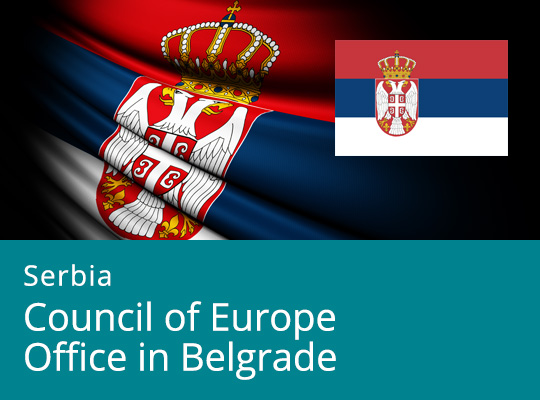Reinforcing Judicial Expertise on Freedom of Expression and the Media in South-East Europe (JUFREX)
The Project is financed by the European Union and the Council of Europe.
Countries: Albania, Bosnia and Herzegovina, Montenegro, Serbia, North Macedonia and Kosovo*
Funding: European Union and Council of Europe
Implementation: Council of Europe
Duration: 36 months (19 April 2016 – 31 March 2019)
 Objectives
Objectives
The overall Project objective is to promote freedom of expression and freedom of the media in line with Council of Europe standards, with a specific focus on the Judiciary in South-East Europe.
Specific objectives (SO):
Support to Judiciary:
- SO 1: To enhance the application of the European Convention on Human Rights (ECHR) and the European Court of Human Rights (ECtHR) case-law in the field of freedom of expression in the daily work of the judiciary through the interpretation and implementation of the legislation in line with European standards.
- SO 2: To strengthen the capacity of national training centres, judges’ and prosecutors’ academies and bar associations to train legal professionals on the ECHR, the case-law of the ECtHR and other European standards on freedom of expression.
- SO 3: To increase the awareness and capacity of judges, public prosecutors and lawyers dealing with freedom of expression issues on CoE standards and the case-law of the ECtHR.
Additional components
- SO 4: Support to media regulatory authorities
To enhance the independence and effectiveness of the bodies responsible for broadcasting regulation, in line with European standards. - SO 5: Training of media actors
To promote rights and responsibilities of journalists and develop professionalism, responsibility and respect of ethical rules among journalists based on the ECtHR case-law and other CoE legal instruments.
 Partners
Partners
All activities will be implemented in consultation and co-operation with the relevant public authorities and media professionals in the beneficiary countries. Main partners are Judicial Academies/Centres, Bar Associations, Regulatory bodies, Associations of journalists and media outlets.
 Target groups
Target groups
Judges, prosecutors, lawyers, employees of media regulatory authorities, journalists and other media actors.
 Final beneficiaries
Final beneficiaries
Citizens and society as a whole.
 Expected results
Expected results
Support to Judiciary
- ER/SO 1: Domestic judgements reflecting application of Article 10 and ECtHR case-law are increased;
- ER/SO 2: Training curricula on Article 10 are developed and capacity of the national training institutions with regard to freedom of expression and the media are improved;
- ER/SO 3: Regional forum of legal professions is established and regularly meets to exchange good practices and provide mutual support for the development of domestic case-law in line with ECtHR case law on media issues, namely Article 6, 8 and 10.
Support to media regulatory authorities
- ER/SO 4:
Studies on independence and effectiveness of the regulatory authorities continue to be provided after
request of the national authorities;
Regulatory authorities employees’ professional capacities are strengthened;
Regional co-operation between regulators is developed; exchange of good/bad practices is established.
Training of media actors - ER/SO 5: Structured dialogue between media actors, self-regulatory bodies, judiciary, politicians, parliamentarians, police and human rights defenders is established at national and regional level. Media actors’ are aware of their duties and responsibilities and their professional capacities are strengthened.
 Main activities
Main activities
Expert meetings, assessments, workshops, trainings and awareness-raising activities, seminars, round tables, regional forum and networks, curricula development, training of trainers, studies, publications, expert opinions.
* This designation is without prejudice to positions on status, and is in line with UNSCR 1244 and the ICJ Opinion on the Kosovo Declaration of Independence.



